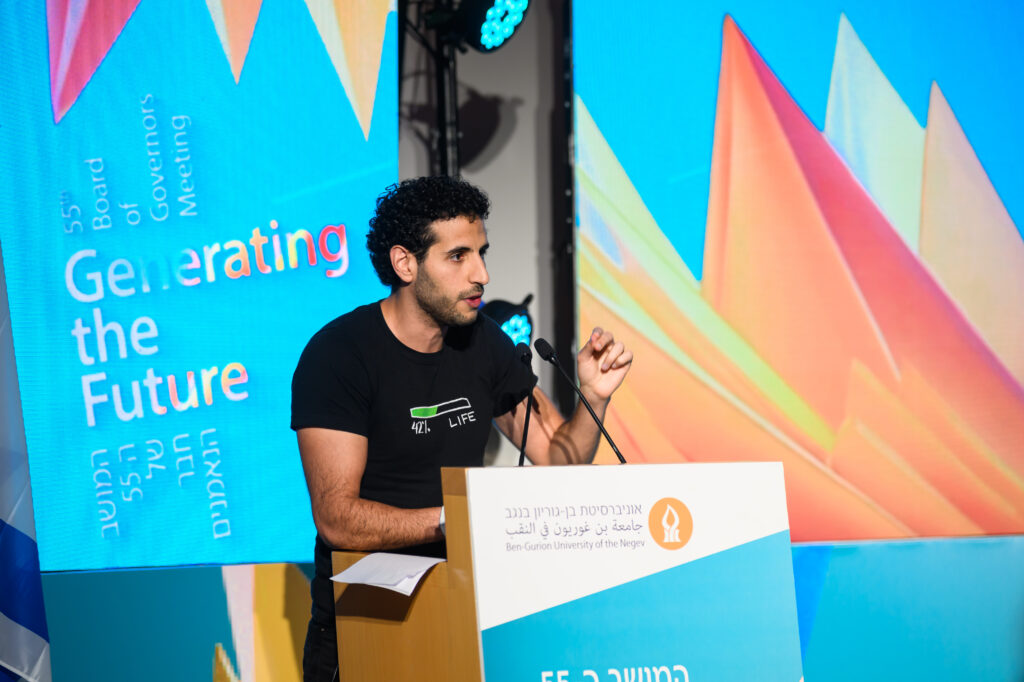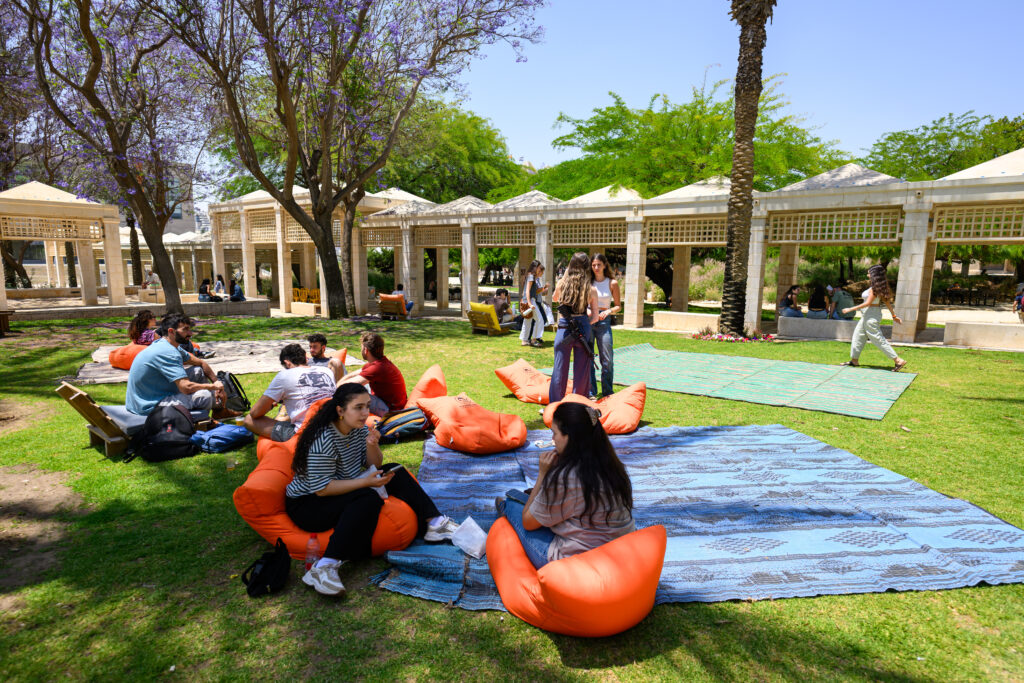
Moment Magazine Spotlights BGU in Israel Vision Project
Moment Magazine Spotlights BGU in Israel Vision Project
July 26, 2024
Current events, Social Sciences & Humanities
Moment Magazine – As part of Moment’s Israel Vision Project, four extraordinary faculty members and students from Ben-Gurion University of the Negev (BGU) were highlighted in the series. These conversations were thoughtful and heartfelt, and when read together, they will take you far beyond the headlines to understand the thinking that is shaping contemporary Israeli society today.
Prof. Daniel Chamovitz: 18 to 35-year-olds are the strongest generation in Israel’s history
Prof. Daniel Chamovitz, the President of BGU, noted to author Nadine Epstein that the burden of Israel’s future is now on the shoulders of Israel’s younger generation. “I think we’ve seen after what happened on October 7, the younger generation of Israel from ages 18 to 35, who we thought were superficial, and the TikTok generation, have proven themselves to be the strongest generation ever in the history of Israel, and that’s saying a lot,” he says. “They’ve fought through the hardest war, they’ve dealt with greater loss than ever before, and they did this while leaving their jobs where they were making more money than ever before. And this happened to 70 to 80 percent of them, on the right and on the left, not including the ultra-Orthodox.”
Prof. Chamovitz has made 37 shiva calls since October 7 up and down and across the east and west of Israel. “There’s nothing that defined who I was meeting with except for an absolute love and commitment to the country,” he says. “So what brings me hope is that this generation now has to take on the mantle of leadership. Our generation failed. The young generation can take the responsibility just like our generation did after the 1973 war when they basically told the generation that founded the country, ‘Your time is up, you gotta’ go, and now we have to change.’”
Prof. Dan Blumberg: Inventing new technologies ensures Israel’s future
The chair of the Israel Space Agency and VP for Regional and Industrial Development at BGU, Prof. Dan Blumberg is a firm believer in the power of technology. “If I look five years ahead, we will again be a leading country with a lot of new products,” he says. “We will be strong again. We have the capability of developing a flourishing ecosystem around space technologies, which will make huge changes to the world in the future,” notes Prof. Dan Blumberg.
“We developed desalination using reverse osmosis,” he says. “We developed innovative irrigation techniques, and we’re going to develop a whole lot of new technologies related to the big challenges, which are food supply, water supply, energy supply.” In order to build new technologies that Israel can rely on in the future, Prof. Blumberg believes Israel needs to invest in education and that societal inequities need to be addressed.
Dr. Oren Wacht: Israel’s healthcare system is a model for coexistence
As the Head of the Rachel and Max Javit Medical Simulation & Classroom Building and Head of the Department of Emergency Medicine at BGU, Dr. Oren Wacht was directly involved in October 7 rescue efforts and was leaving for reserve duty with his EMT unit the day after author Nadine Epstein spoke with him.
Dr. Wacht lives with his wife and children in Beer-Sheva and is deeply concerned about Israel’s future.“I would like to see a place for my kids and next generations to live in happily, in a place more concentrated on joyful things than on war and death and destruction,” he says.
Dr. Wacht believes Israel’s healthcare system can serve as a model for coexistence. “If you go to the doctor or the emergency room in Israel, you’ll see how things work,” he says. “I always give an example about Jewish holidays. Muslim and Christian staff do the shifts so that we can have a holiday. And when they have Ramadan, we do the shifts. It’s not an issue.”
Dr. Buzi Raviv: Changing how we communicate might allow Israel to survive
Dr. Buzi Raviv launched and runs the student radio station at BGU. Raviv believes that radio “is a good setting for human communication. When you are on the air, it’s the opposite of being anonymous, which is what characterizes social media.
“There are a lot of people in despair,” he says. “They don’t know if we can survive together if we can stay together as a whole unit. Then there’s this conflict between the secular versus religious people. What I would like to see in the future is more understanding and more human communication than we have at the moment.”
“Plants are so quiet and full of life and are much stronger than us,” says Dr. Raviv, who holds a PhD in molecular biology. “They survive almost everywhere on the planet. We depend on them, and we need to learn from them.” ‘They have sustainable reproductive units and seeds, and when there are harsh environments such as storms and heat waves, they are carefully hidden in the ground and survive.'”
He thinks that Israel might survive if the kinds of settings that encourage responsible conversations are supported and created. “We can’t keep going in the same direction as we have been for the past few years. If we do, I don’t think we’ll survive.”







